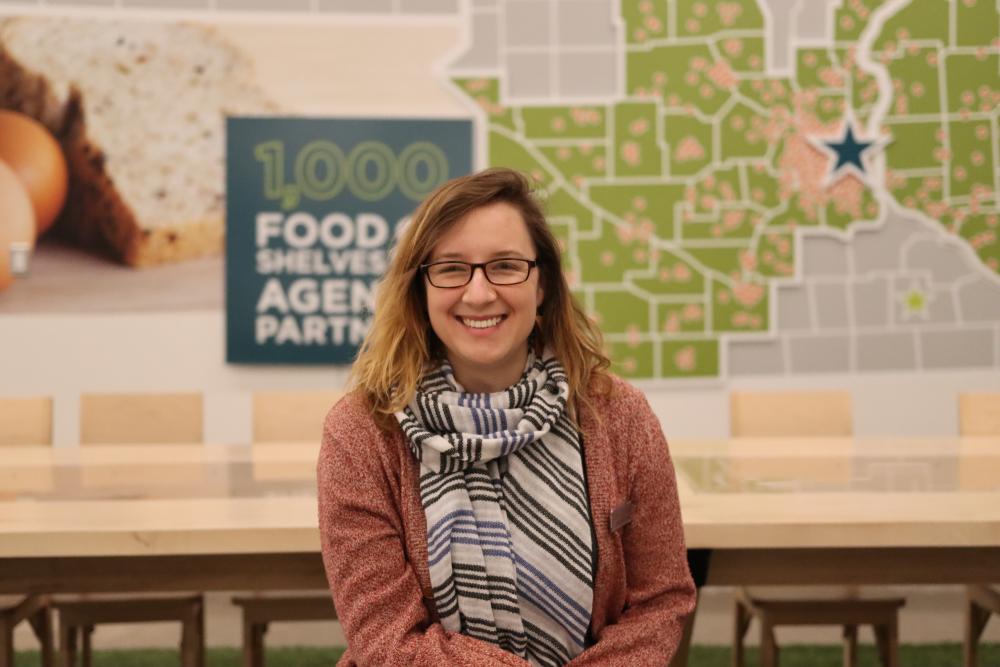
December Reflections: Child Hunger
Q&A with JoAnna Lund, Child Hunger Program Manager
While we’re far from out of the woods in responding to and recovering from the impacts of the COVID-19 pandemic, we thought it important to reflect on a remarkable year and some of its bright spots. Keep an eye out this month for the reflections from numerous Second Harvest Heartland team members.
Our partnerships with school districts and community organizations might be stronger than ever. For our existing partners, we were able to grow and evolve. With newer partners, this year provided opportunity to forge deep, meaningful, and collaborative relationships. Our team stayed nimble and available to support our partners in creative ways, doing all we could to break through the many hurdles this year presented.
In a year full of adaptations, what has been the most important learning?
The pandemic has united all of us working in child hunger. It’s laid bare the significant barriers to ending child hunger, and it’s revealed the possibility of universal meals. While our partners were heads down in getting meals out to students, our team was fighting to make sure the meal programs remain operable.
There is growing consensus that our current meal program structure is not sustainable, particularly as schools are under the strain of the pandemic. What that means is a need to overhaul current programs, and to collectively advocate for the policies that ensure these meal programs work for students and schools. I think we’re much more ready for that hard work because of the pandemic.
Were you able to do anything this year that you never would have dreamed about or attempted to do if not for COVID?
Yes. The possibility of universal meals! We have always known the reality, that before the pandemic 4 in 10 Minnesota public school students were eligible for free or reduced lunch. This means schools often serve as students’ primary source of nutrition. And students can’t learn when they’re hungry. But there have always been so many barriers, so much opposition to making universal meals a reality. But we’ve seen it happen this year. It’s been chaotic and imperfect, but schools, districts, hunger-relief organizations like ours, and the Departments of Health and Education have been working hard and proving that universal meals is both possible and effective.
Within that effort, we’ve also learned how much investment it takes to make universal meals possible. It requires a ton of effort, and it’s expensive, understandably so – and we’ve also seen how many families are relying on these meals!. We know what kind of support, what kind of funding, is needed to keep meal programs viable and sustainable, and there’s a growing and hopeful push to think more holistically about child food access and family health. We must keep the pressure on even once the pandemic subsides.
What COVID-response learnings will the Child Hunger team carry into the future?
This year’s crises have required collaboration. The type of collaboration and cooperation that, frankly, is easy to not prioritize. To manage crises we must work together, and we learned that alongside our existing and brand-new partners. We’ve grown together this year, and we’ll do all we can to maintain it.
We’ve also seen much more cooperation and collaboration with our partners to ensure meals service coverage: One partner will cover a specific area on the weekends, and the other partner will serve there during the week. Who has school breaks? Who has evenings? Working closely together we’ve been able to offer reliable and easily accessible meal access to the families we serve.
The pandemic has also removed the silos and boxes inherent in some programs and funding models, such as the need to focus on “Breakfast in the classroom,” which obviously hasn’t been a thing this year as many children are not in the physical school. This increase in flexibility has allowed us to prioritize efficiency and impact. It’s this flexibility that has allowed us to pivot to meet changing needs of our partners and communities, wherever they are. We’re hopeful to maintain flexibility into the future.
Learn more about our Child Hunger Initiative, including the innovative Roseville Family Table program in partnership with Roseville Area Schools Nutrition Services and Minnesota Central Kitchen.
